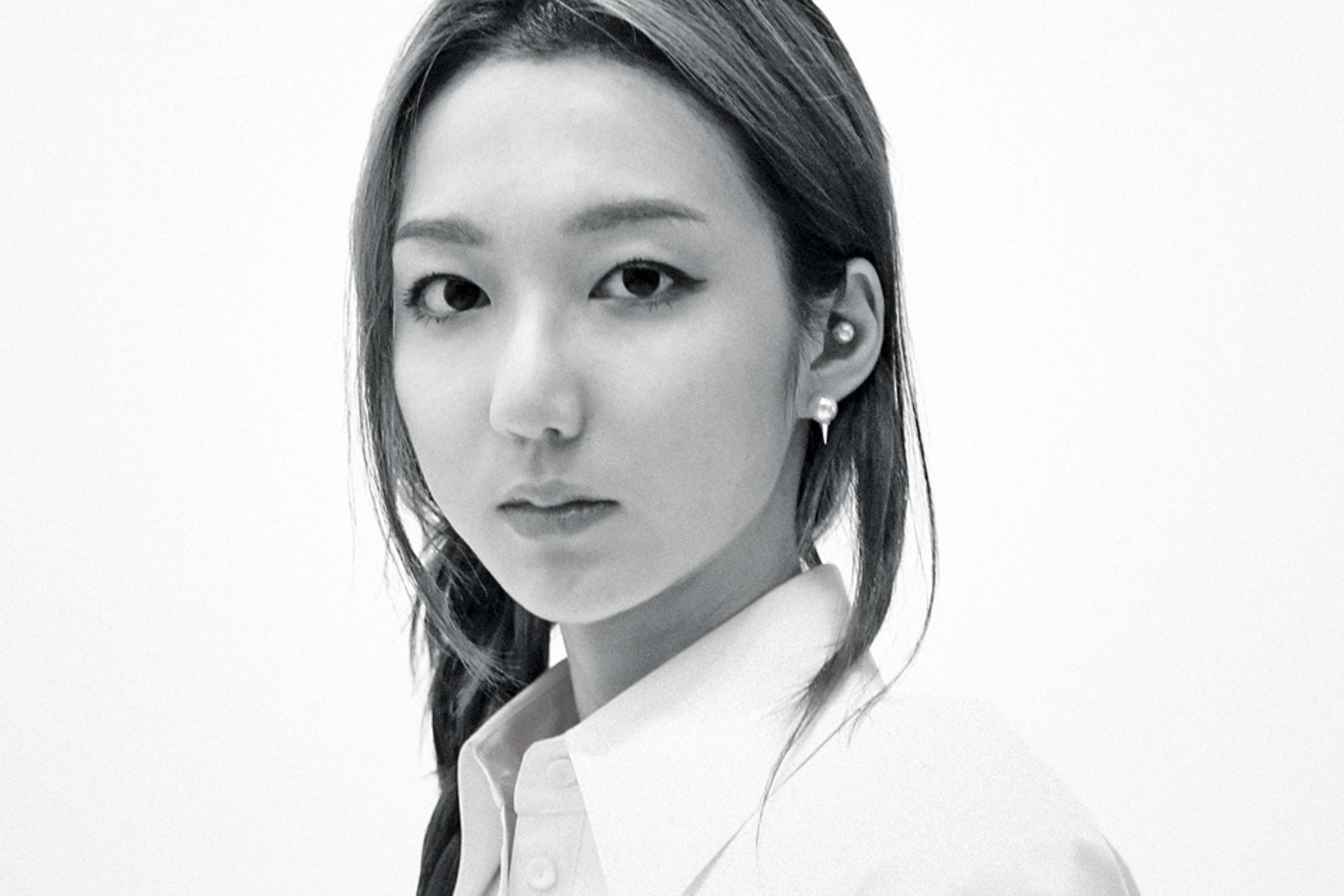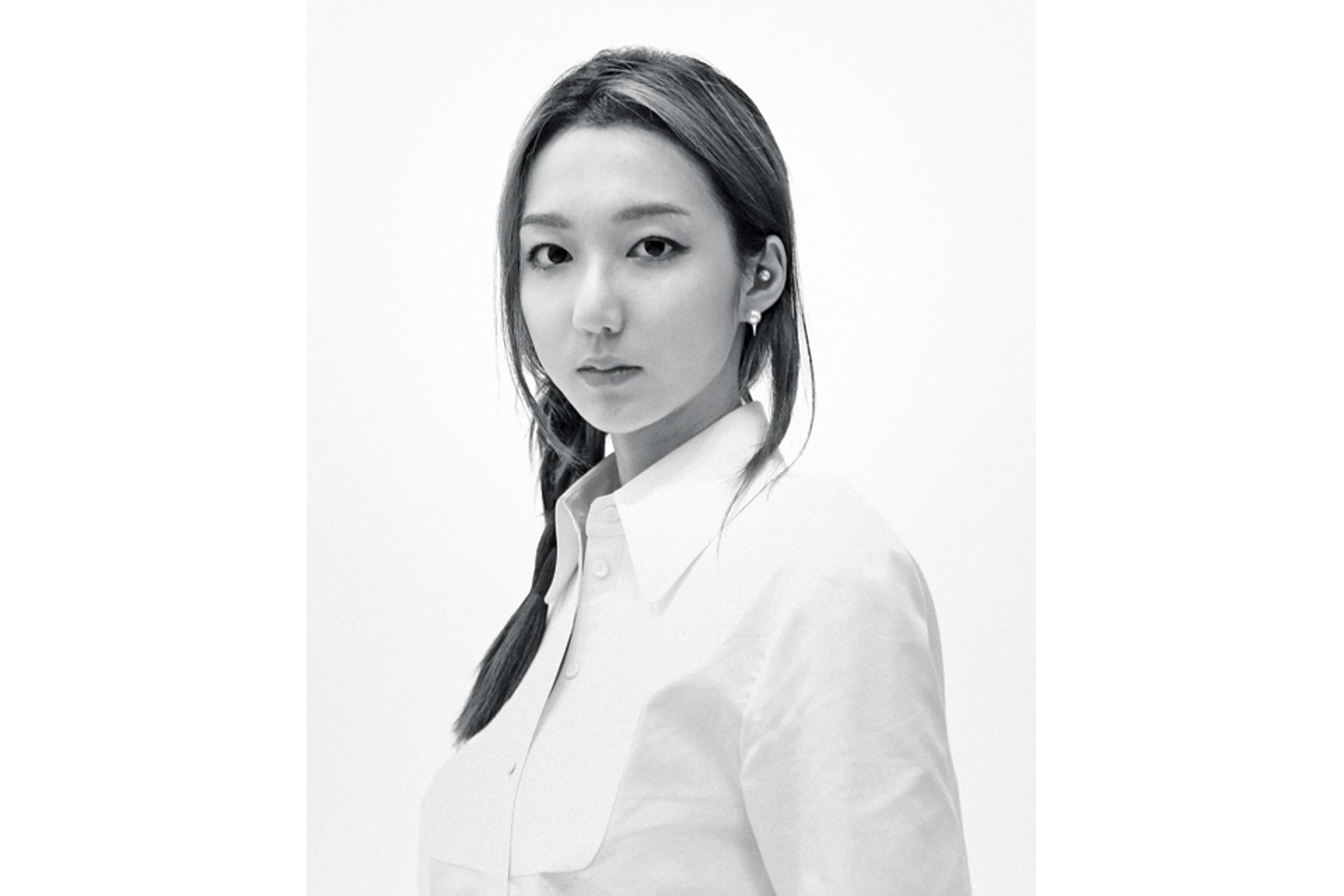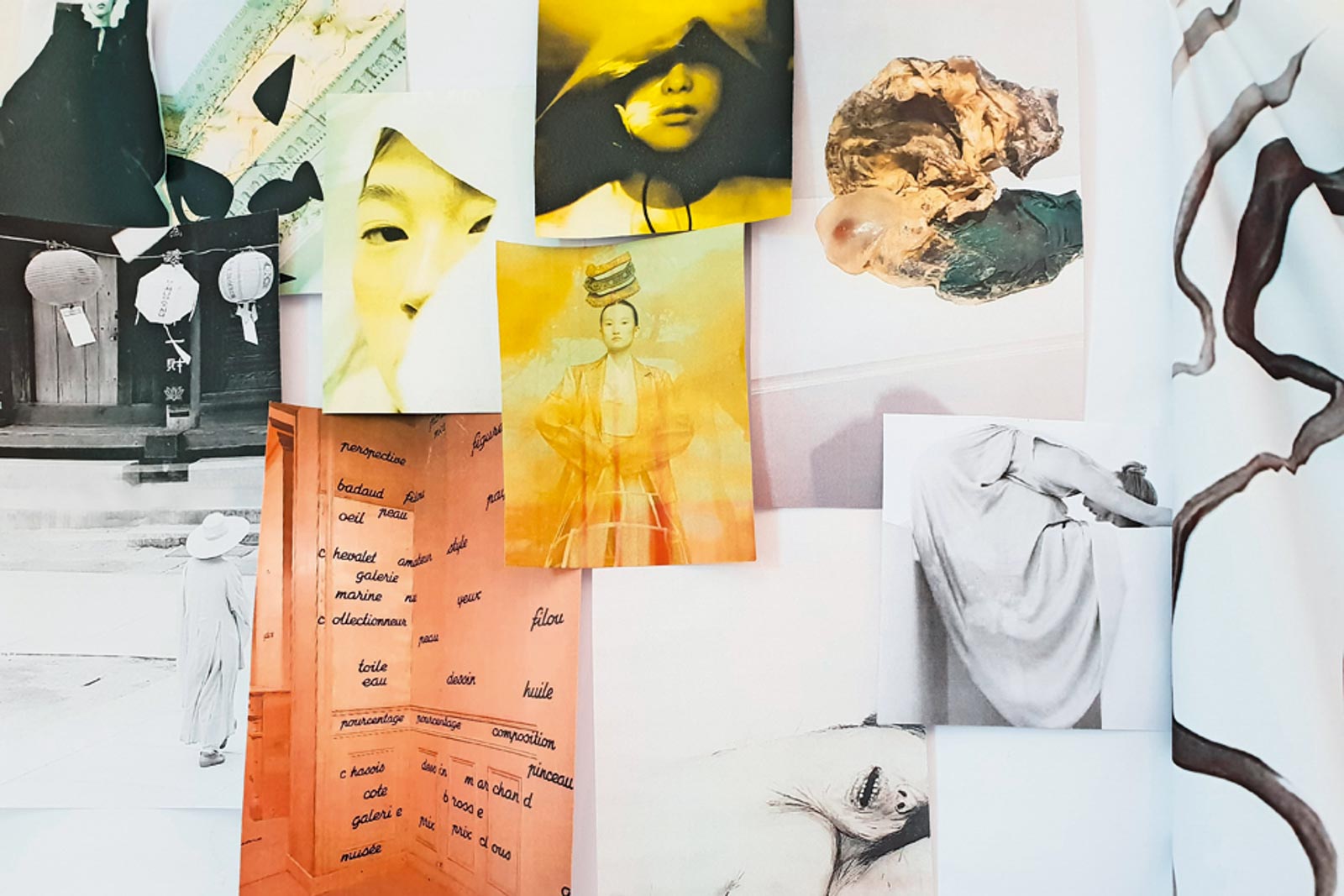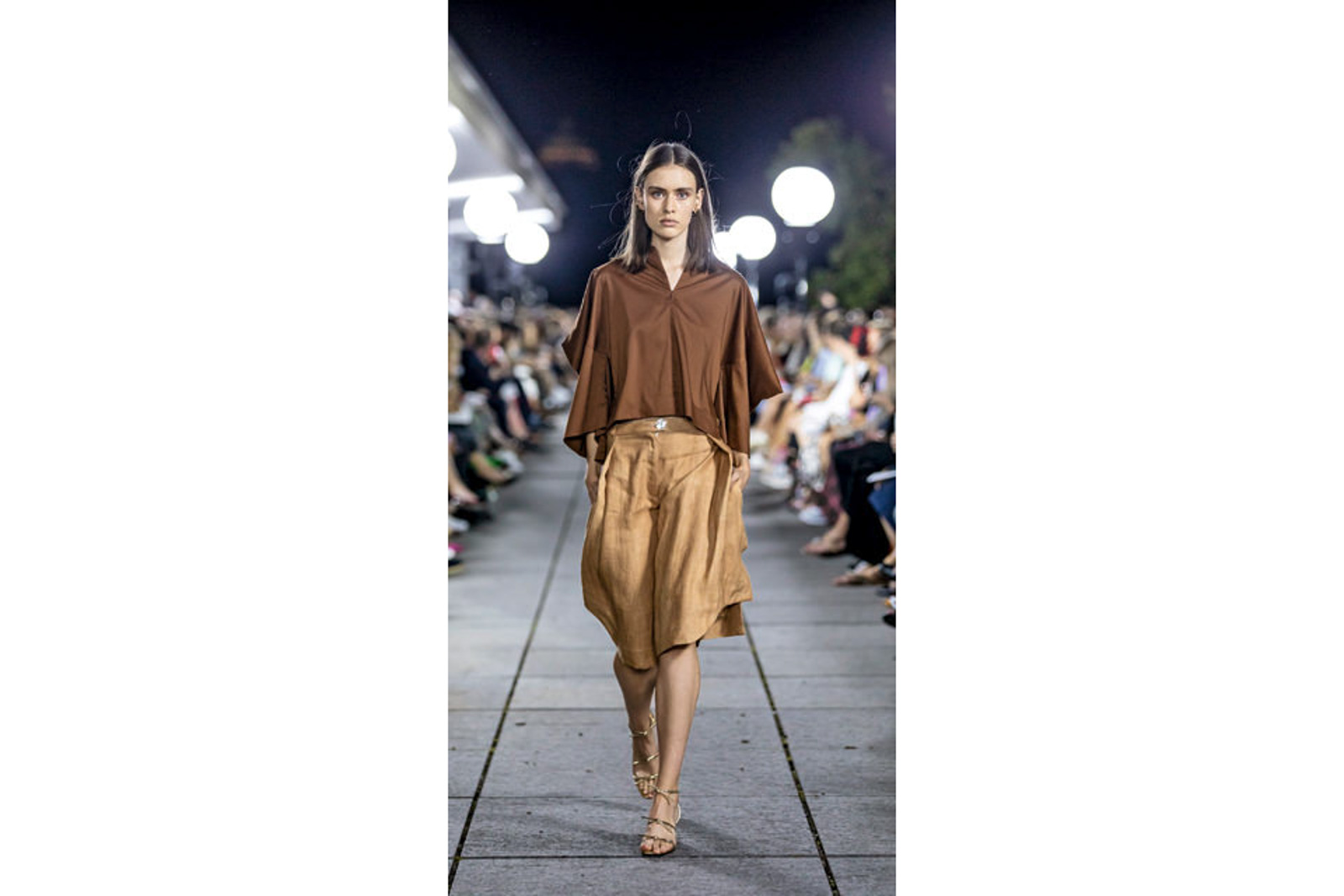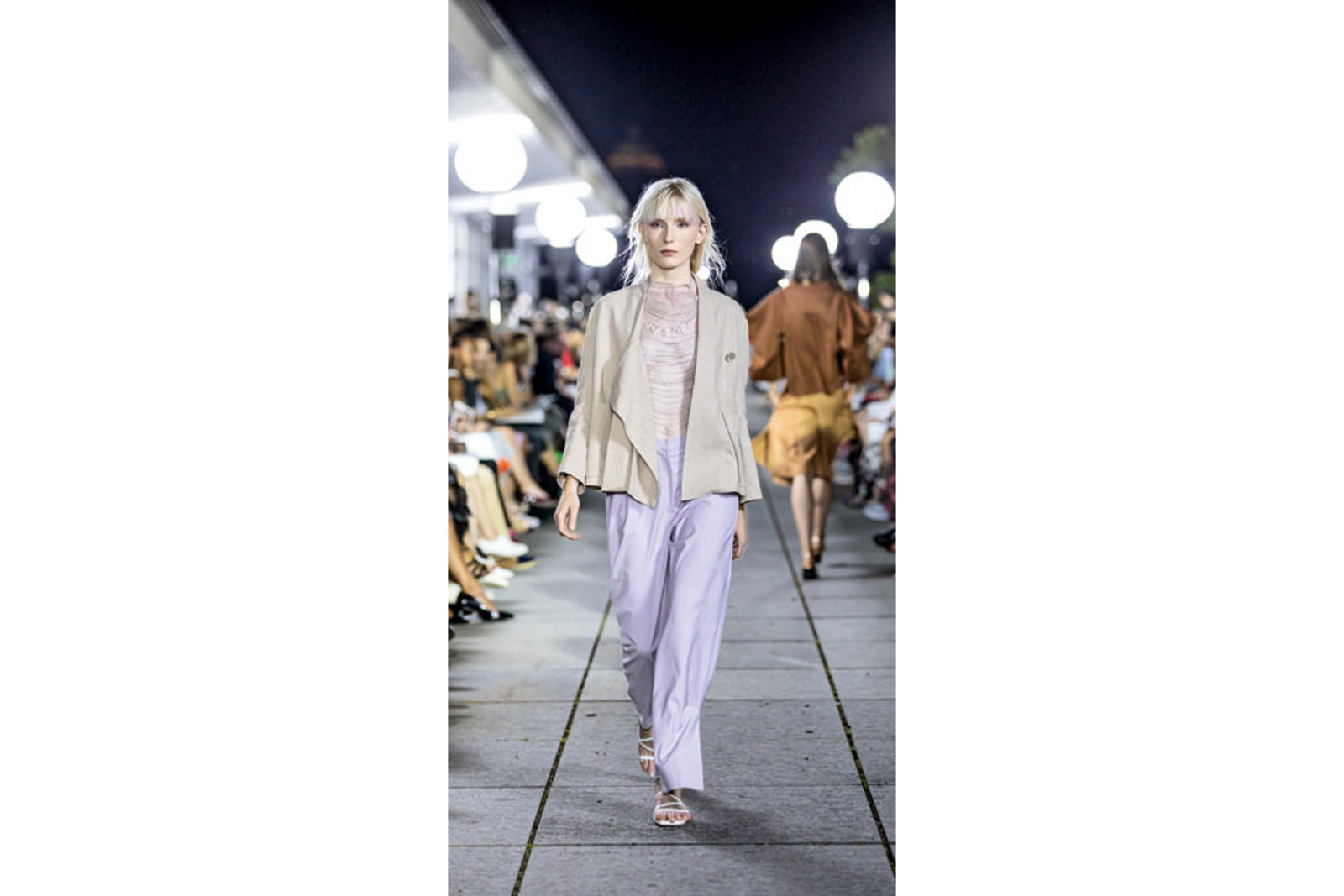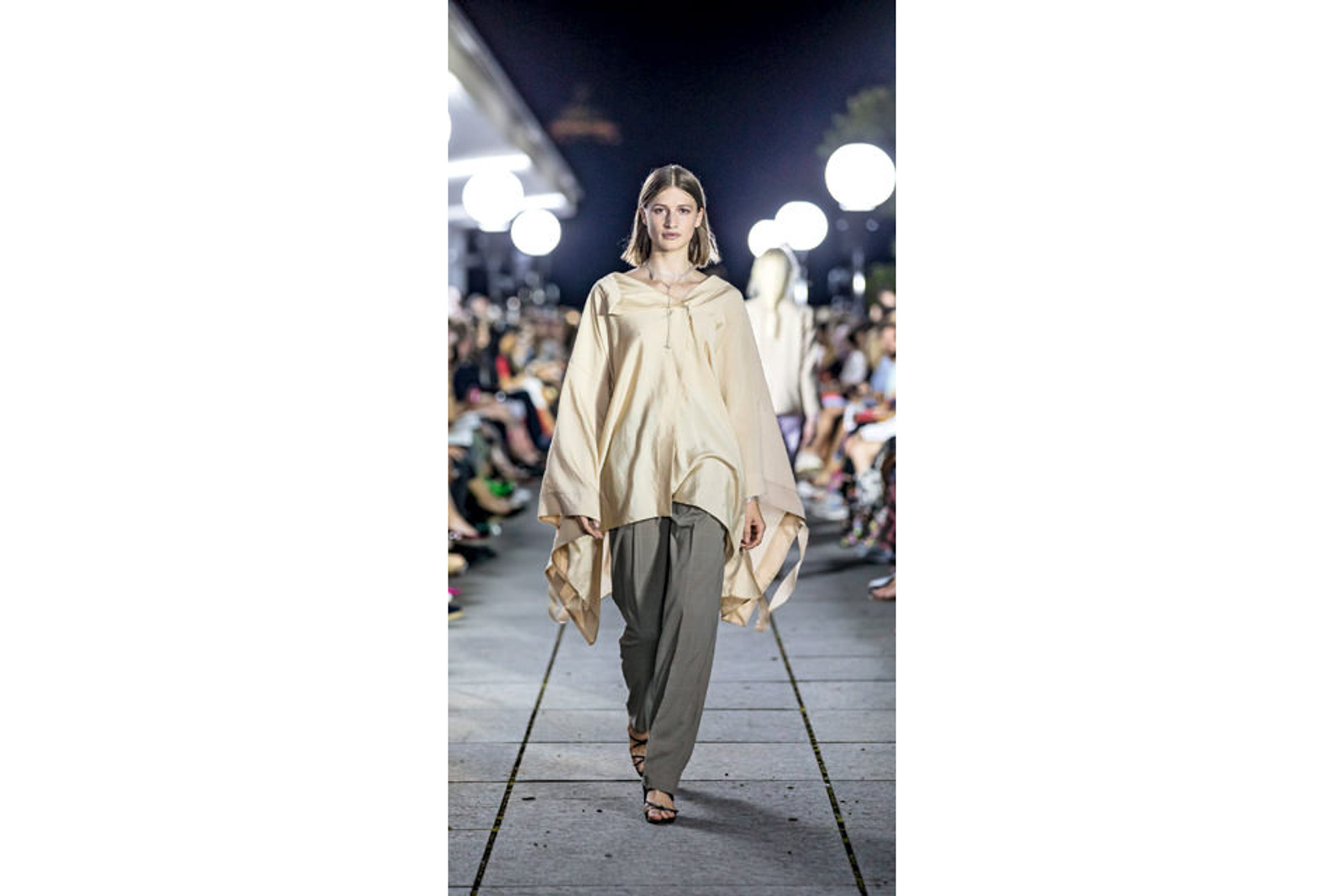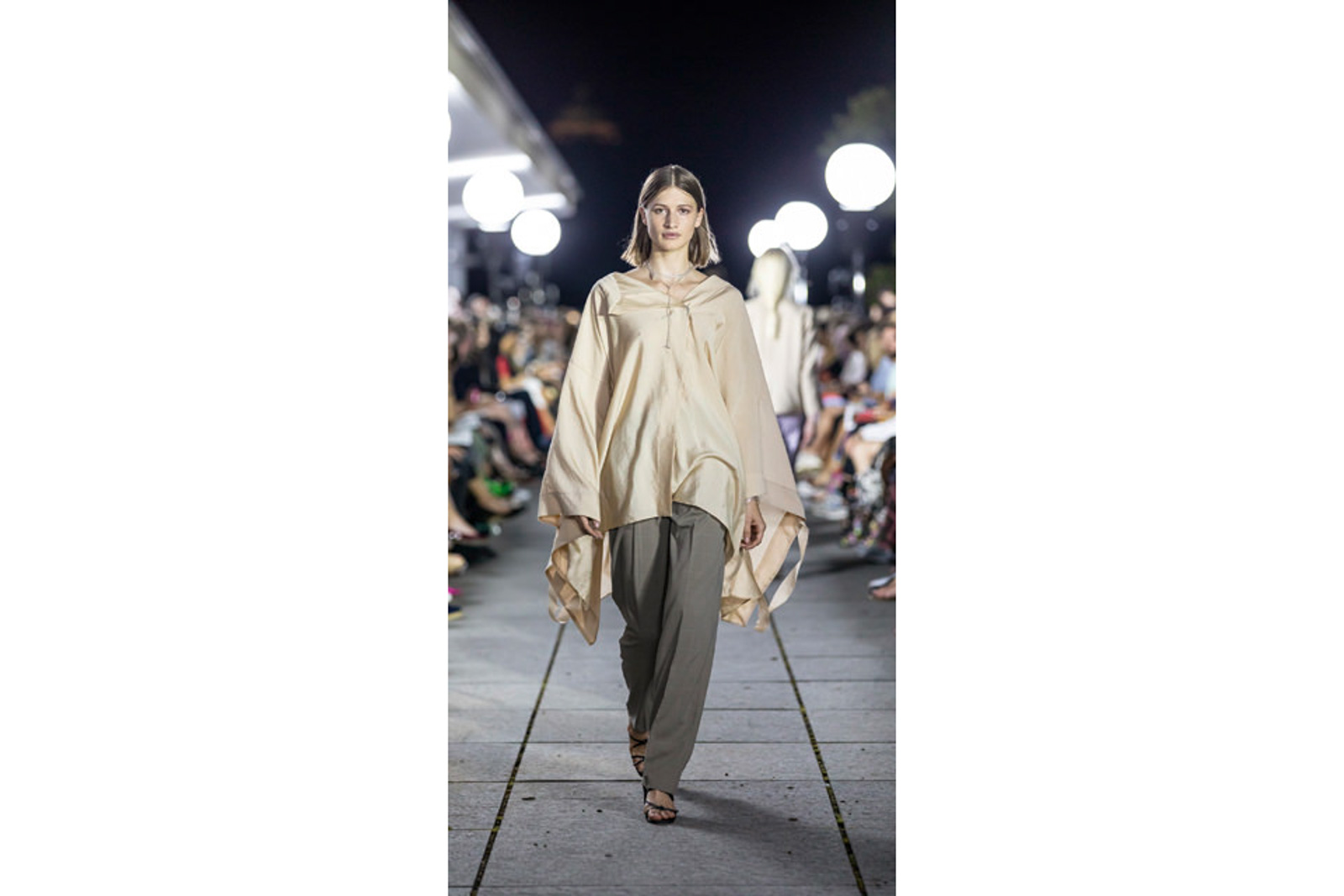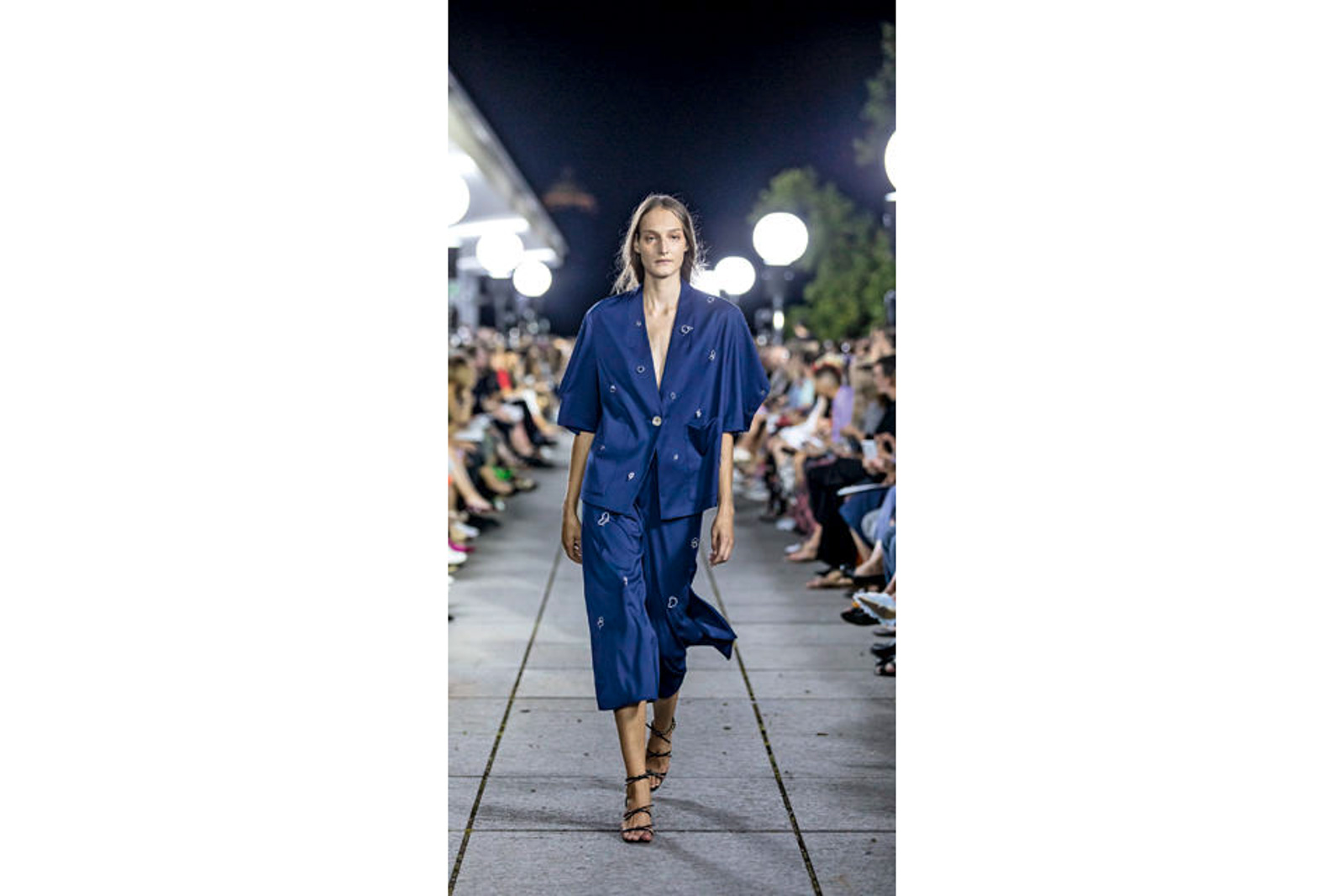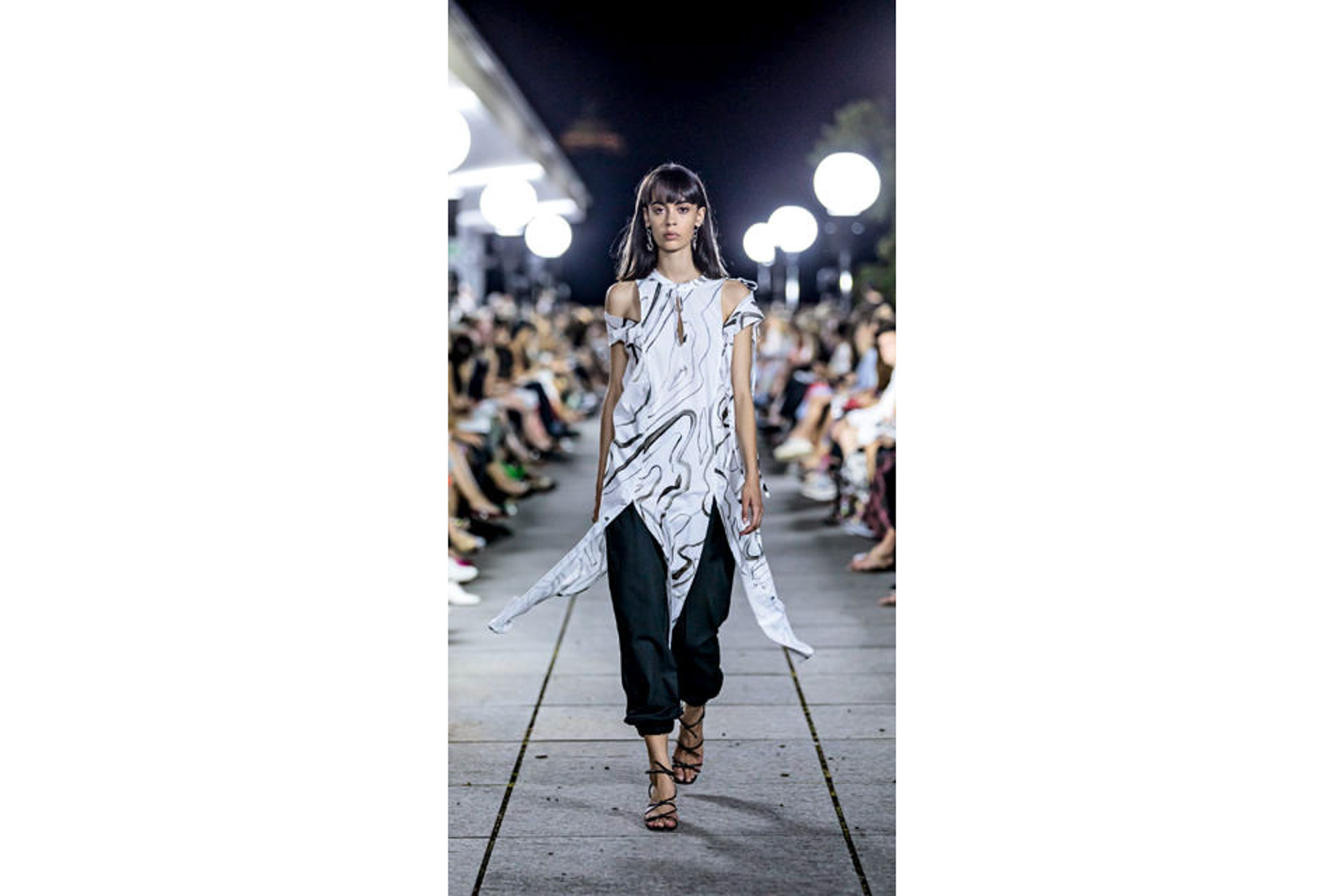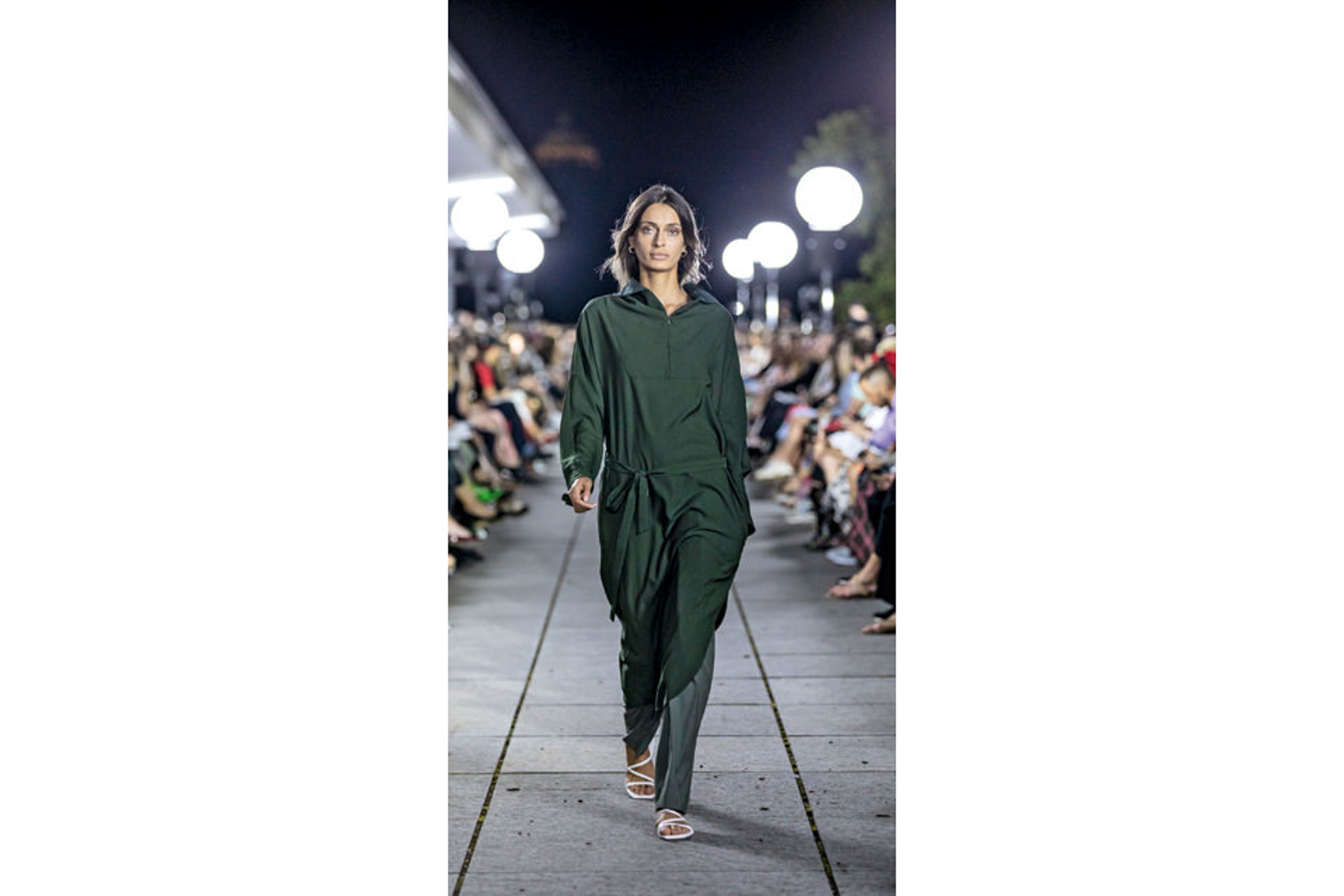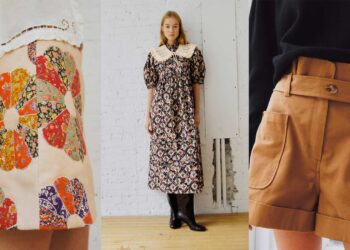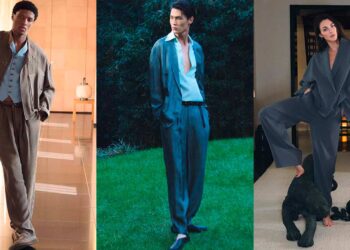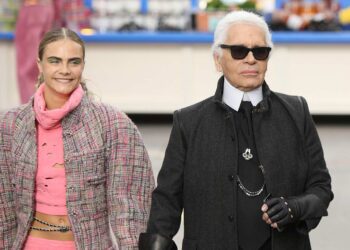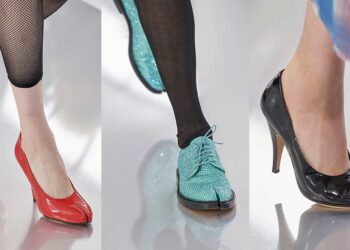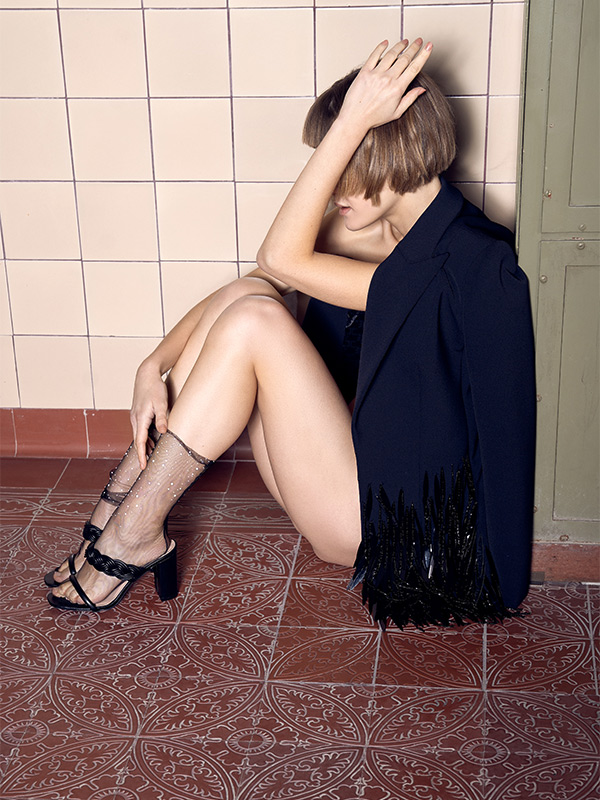Nina Yuun’s dresses are as loosely designed as whipped cream. The kind you want on cake, ice cream and preferably even with coffee. Yuun’s designs unite minimalism with sophistication – a combination that adds pepper to the Swiss fashion scene.
FACES: What can the Swiss learn from Koreans?
Nina Yuun: Cooking! (laughs) No, seriously, that’s a difficult question. For one thing, I find it inappropriate to generalize about an entire society – ultimately, every individual is different. My work is precisely about such stereotypes. If I have to answer the question this way, I think that the Swiss tend to be very structured, organized and detail-oriented, which impresses me a lot. Right from the start, I was super impressed by how clean everything is here – even the garbage cans at the station are cleaned regularly. Due to the high level of prosperity, I could perhaps say that the Swiss sometimes complain a little too much about work, immigrants, the weather and so on. Switzerland is so rich and successful and beautiful that other countries can only be envious. In Korean society, it is frowned upon to complain about one’s circumstances – this makes people more resilient. However, I often ask myself whether this is healthy for people…
F: What surprised you the most after moving to Switzerland from Korea?
NY: Where are all the people? (laughs) I was surprised that entire villages seem to be “extinct” here. In Seoul, you can find lots of people on the streets – 24/7. In Switzerland, however, I have seen sheep grazing in the middle of the village. (laughs)
F: What do you miss about Korea?
NY: The food, my family and friends. Korean cuisine is very diverse – I really miss that. That’s how I taught myself to cook here in Switzerland.
F: Who, where or what is home?
NY: Since I’ve been in Switzerland, I’ve given this a lot of thought. It was also the inspiration for my spring/summer 2020 collection: “Home”. I don’t think there’s a simple answer to this – but if I have to break it down to the essentials, it’s the people who mean the most to me. I feel at home where these people are.
F: What fascinates you about clothes?
NY: That you can express your own attitude through clothing: your style but also your values.
F: What does it mean to you to shop sustainably?
NY: It is incredibly important to know the life cycle of clothing. How was something produced, how long can you wear the piece – which is often a question of quality and price – and where does the piece end up after use. That’s why I’m very critical of “fast fashion”. This cannot continue if we think about the next generation and the generation after that with a clear conscience.
F: What standards do you set for yourself and your fashion?
NY: I want to give women “everyday elegance” – paired with a certain down-to-earthness and sustainability. I hope that my pieces will remain in the wearer’s closet for a very long time and can always be combined appropriately – no matter what the current trend is.
F: What is your definition of trends?
NY: Trends are part of an overall scenario: they are exciting, but they don’t stay. We should sometimes be able to question them critically.
F: What words do you use to describe the fashion industry?
NY: As exciting, multi-layered, non-verbal communication.
F: What problem is the fashion industry currently facing?
NY: Sustainability. Many brands engage in a kind of “green washing”. Famous designers who claim to be sustainable are turning to mass-produced goods with artificial fabrics and chemical prints. In fashion, sustainability initially requires a generous portion of transparency. And as designers, we are all constantly learning how we can work more sustainably.
F: What is your fashion no-go?
NY: When clothes end up in a museum without ever having been worn in real life. Fashion has to be made for people.
F: Do you remember the first time you saw your clothes on someone on the street? What was it like for you?
NY: Yes, I remember exactly. I was on my way to my studio and saw an elderly lady wearing a coat from my first collection. An indescribable feeling! She looked beautiful.
F: What is the beauty of working in and with fashion?
NY: Constant inspiration. It forces me to always be open to impressions and to develop as a designer and a person.
F: What are the downsides of fashion?
NY: Literally: physical exhaustion! I hardly remember my last real vacation.
F: What challenge are you currently facing the most?
NY: Time management and cost control.
F: Switzerland does not have a classic Fashion Week. Do you regret that?
NY: Mode Suisse is getting close! What Yannick Aellen and his team have built up is fantastic for the Swiss fashion industry. I find it very exciting how different the labels at Mode Suisse are – a real enrichment for the Swiss fashion scene. I am incredibly grateful that I am able to show my fashion here on a regular basis.
F: What does your participation in Mode Suisse mean to you?
NY: It means a lot to me, especially because I am an immigrant. It reflects an open, tolerant Switzerland.
F: Which part of a fashion show do you like best? And which aspect stresses you out the most?
NY: The first fitting of my collection to the models. Then I see my original idea in reality for the first time. What stresses me out the most is the pressure to keep developing and to make every collection even better. Maybe I’ll learn to deal with it better at some point – it’s just part of the job.
F: How would you describe the relationship with other Swiss brands and designers?
NY: I got to know a lot of other labels and designers through Mode Suisse. The fact that our styles are so diverse strengthens us and Switzerland as a fashion center. And ultimately, there are so many great people among them who are great to talk to.
F: Do you always keep the consumer in mind when designing?
NY: Of course. I always have different people in my mind’s eye; strong women who I appreciate and admire.
F: Who are you emulating?
NY: Inspirations and experiences from my daily life. In the upcoming spring/summer collection, for example, the focus was on the concept of “home”: a truly individual feeling that can change again and again over time and life situations.
F: Which item of clothing has been hanging in your closet the longest?
NY: A light denim blouse that I created myself.
F: If you hadn’t become a designer, what would you be doing instead?
NY: Maybe I would be a cook? (laughs) My grandmother is a fashion designer, so I was practically born into it. As a little girl, I spent many hours in her studio.
F: What is more important: cut or fabric?
NY: The cut with a high quality fabric.
F: What do you wear yourself in everyday life?
NY: A casual mix with pieces from my current and past collections.
F: How has the consumer’s relationship with fashion changed in recent years, and what does this change mean to you?
NY: Consumer awareness has increased significantly. They want to know where the fabric comes from, how the garment was made – the whole brand story. I think this is a great opportunity for us designers because we have an authentic story that we can communicate to customers.
F: Where do you produce your fashion, and do you know every hand your collections pass through?
NY: I work with selected tailors in Korea. These are all independent small businesses, most of which have been in the industry for over 30 years. The quality is correspondingly good. I often know the whole family and we talk almost every day. Many of “my” tailors are very proud that their pieces are sold in Europe. When it comes to fabrics, I make sure that I buy certified brands.
F: What do you do when you can’t find inspiration?
NY: Then I do what I want – I go to museums, watch movies or go on a little trip. Fortunately, inspiration then comes automatically at some point.
F: Who do you want to be your muse or the face of Nina Yuun?
NY: A woman who has experienced a lot in her life and has fought for her rightful place in society, who is interested in other cultures, countries and people and who values aesthetically pleasing things. There are countless women who fit this image.
NiNA YUUN
The stairs down to Nina Yuun’s studio in Burgdorf are steep. Just like her rise to the Swiss fashion scene, where the Korean has been involved with her own label since 2015. New Jersey and Seoul were her home before the now 30-year-old moved to Switzerland. It is love that guides her and a vision that she brings with her: that of her own label. In fall 2018, Nina Yuun will be showing her fashion for the first time at Switzerland’s biggest fashion event, Mode Suisse. In Paris, Shanghai, Beijing, Dunedin, San Francisco and Seoul, audiences have already applauded her collections, which are often inspired by her Korean home. Her 2020 summer collection even bears the appropriate title – “Heimat” – and features deconstructed blouses and wide pants that cause just as much of a stir on Swiss streets as they do on Korean ones.


